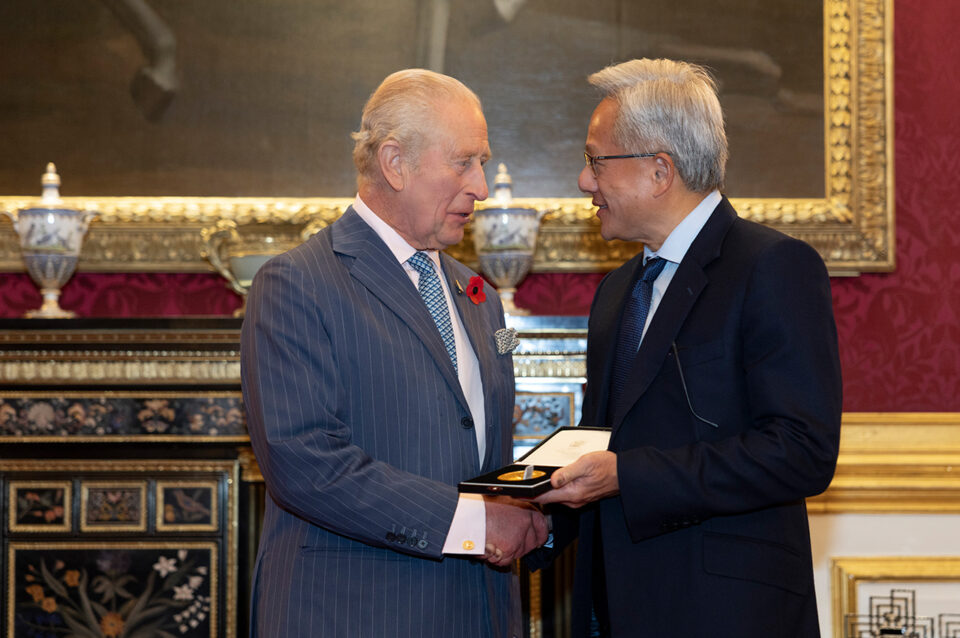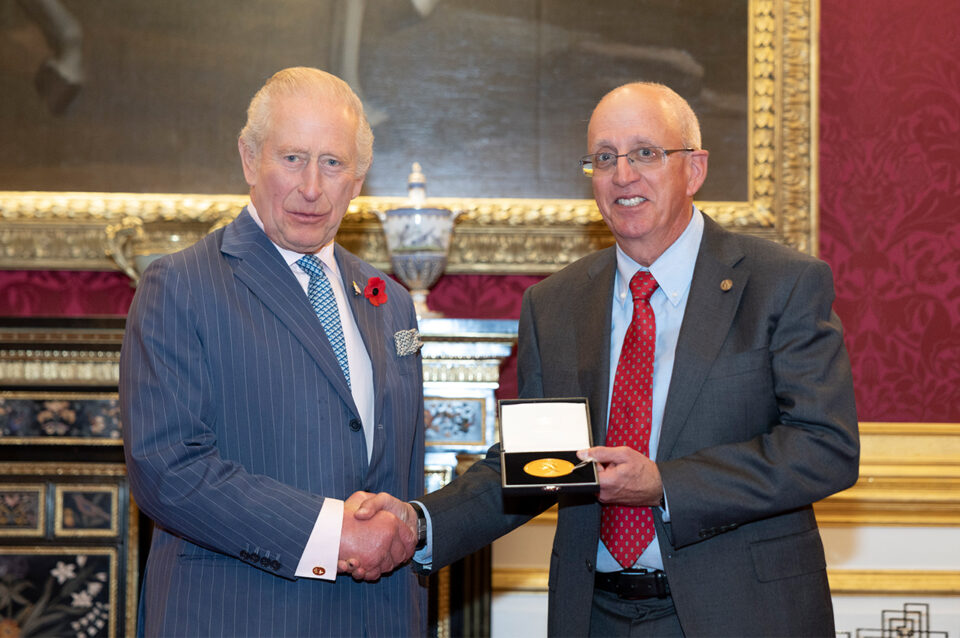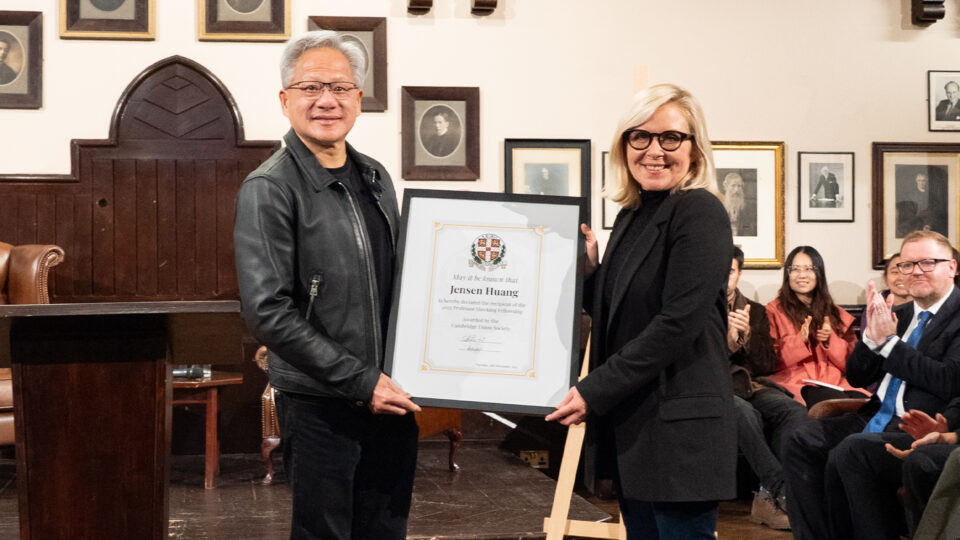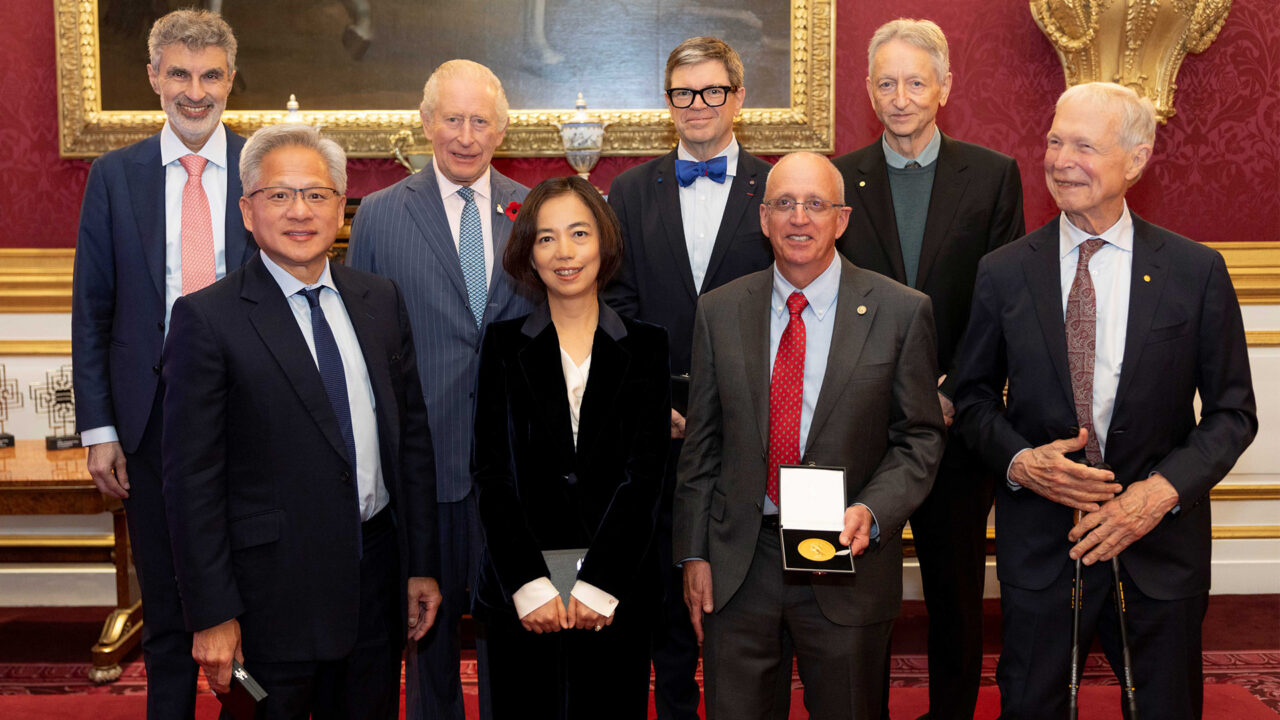NVIDIA founder and CEO Jensen Huang and chief scientist Bill Dally were honored this week in the U.K. for their foundational work in AI and machine learning.
They were among the seven recipients of the 2025 Queen Elizabeth Prize for Engineering, recognized for their contributions to modern machine learning.
Presented by His Majesty King Charles III at St James’s Palace, the prize honored Huang and Dally for their leadership and vision in developing the GPU architectures that power today’s AI systems and machine learning algorithms.
The award highlights their role in pioneering accelerated computing, driving a fundamental shift across the entire computer industry. It’s the breakthrough now revolutionizing every layer of technology, from chips and systems to algorithms and applications — sparking the big bang of AI.

“To be recognized among the pioneers whose work has shaped the world we live in today is an extraordinary honor,” said Huang, acknowledging the visionaries behind technologies like the internet and GPS that have transformed industries and everyday life.
Huang added, “We are living through the most profound transformation in computing since the invention of the microprocessor. AI has become essential infrastructure — as vital to future progress as electricity and the internet were to previous generations.”

Dally credited the foundations of AI to decades of progress in parallel computing and stream processing, adding, “We continue to apply engineering methods to refine AI hardware and software so that AI can empower people to achieve even greater things.”
Together, Huang and Dally helped pioneer the accelerated computing architecture that makes modern AI possible — a platform that enables researchers to train large models, simulate physical systems, and advance science at unprecedented scale and speed.
Their contributions, alongside those of the other laureates, have laid the groundwork for the widespread adoption of AI technologies. A rich tradition in the U.K., this recognition continues the nation’s lineage of nurturing thinkers whose ideas define new chapters in human ingenuity.
Earlier that day, Huang and Dally also attended a roundtable at 10 Downing Street with Secretary of State for Science, Technology and Innovation Liz Kendall, and Minister for Science, Research, Innovation and Nuclear Lord Patrick Vallance to discuss how the U.K. can inspire future engineers.
The roundtable also marked National Engineering Day in the U.K. — an annual celebration of engineers and their impact on everyday life.
The discussion built on NVIDIA’s collaboration with the U.K. government, universities and industry to expand AI infrastructure, research and skills — ensuring the next generation of engineers has access to the computing power that fuels discovery.
Stephen Hawking Fellowship
In a further distinction, Huang also received the Professor Stephen Hawking Fellowship at the Cambridge Union, the world’s oldest debating society. The Cambridge Union Society and Lucy Hawking, daughter of Stephen Hawking, honored Huang for advancing science and inspiring future generations of technologists and researchers.
“Professor Hawking’s life showed that intellect has no boundaries,” said Huang. “That curiosity — pursued with humor and grace — can expand the reach of humanity. He taught us that discovery is an act of optimism. And I can think of no higher compliment than to be associated with that spirit.”

The Fellowship commends individuals who advance STEM and promote public understanding of these fields. Huang was presented with the Fellowship by Lucy Hawking before addressing the audience and joining a fireside chat with Union President Ivan Alexei Ampiah.
Main feature image courtesy of Queen Elizabeth Prize for Engineering and Jason Alden.
